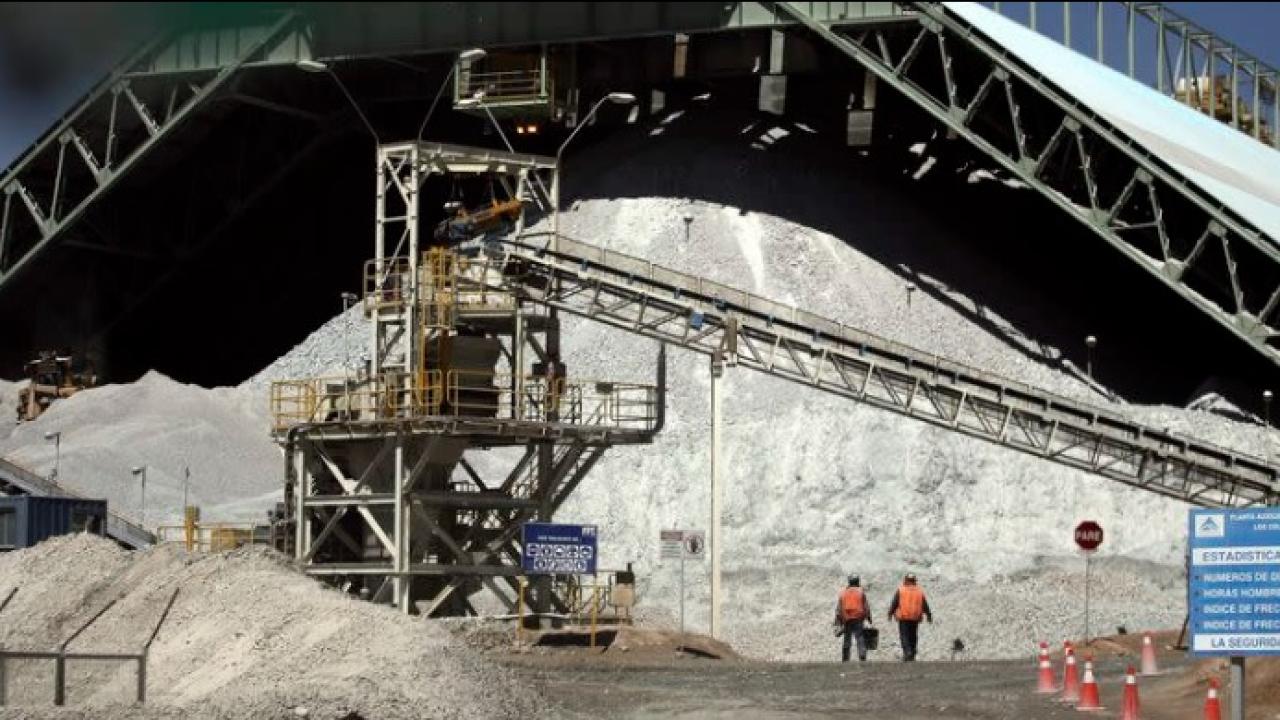
That year, a strike that lasted 44 days caused US$ 740 million in losses. To resume work, the company offered each of the union members who had stopped working a bonus equivalent to US$ 28,900, but this was rejected.
The Chilean Government, through the Minister of Labor, Jeannette Jara, recalled what happened in 2017, when the extension of the strike by Union No. 1 of BHP's Escondida Mine generated an economic impact at the country level.
The authority pointed out that in this new mobilization, which began at 8:00 a.m. yesterday Tuesday, the Labor Directorate "has been fulfilling its role in mediation."
He then said that they hope that the parties “can find a solution soon,” recalling that the strike led by the same union seven years ago had “effects on both production and growth; and also on revenue.”
5.4% of the global copper supply comes from Escondida, which operates in Antofagasta. It is the largest deposit of the red metal in the world.
The 2017 strike, which lasted 44 days (the longest in the history of Chilean mining), generated losses of 740 million dollars and meant a contraction of nearly 1.3% of the GDP.
ANTI-UNION MEASURES?
In parallel, on its second day of strike, Union No. 1 of Escondida accused the company of engaging in “anti-union practices” due to “replacements and other illegal situations.”
In a statement, the workers said they had witnessed “serious anti-union practices” by BHP during the legal strike that began yesterday Tuesday at 08:00 hours.
They pointed out that in the last few hours "the company carried out a shipment of 5,300 tons of copper concentrate on the Coryu Ship at Puerto Coloso, using illegal replacement personnel, since the port operator was an external worker of a shipping company."
In the areas of concentration plants, they also accused, "some supervisors are carrying out operational tasks (...)".
According to the protesters, “the strike has completely halted the electrowinning plants and the Los Colorados concentrator.”
“We once again demand that Escondida BHP immediately cease the anti-union practices that are taking place. Otherwise, we will have to adopt the appropriate protective measures, without prejudice to the complaints to the authorities,” the union said.
THE STRIKE WILL NOT BE LOWED
Within the framework of collective bargaining, BHP offered each of the members of Union No. 1 - which is 2,380 people - a bonus equivalent to 28,900 dollars (approximately $27,000.00) to end the labor dispute.
However, the union demanded $36,000 per head (approximately $33,540,000), increased rest time, adjusted variable bonuses and compensation to dismissed workers for their entire working time (and not up to a maximum of 11 years as established by law).
The company, for its part, also proposed another $2 million interest-free credit bonus and a 2% salary increase over the Consumer Price Index (CPI) for the next 36 months.
In addition, he added a health plan with 100% coverage, an increase in scholarships and bonuses for dependents (children and spouses) of workers who are studying (including those who are pursuing postgraduate studies both in Chile and abroad); and for women, a 10% increase in the bonus for daycare ($519,700 per month, approximately).
BHP confirmed in a statement that the union had not agreed to temporarily end the strike, an alternative presented by the company, which aimed to suspend the protests at 8:00 p.m. on Wednesday.
The decision was made in the context of a meeting called by the Labor Directorate (DT). At it, the mining company offered to resume talks after ending the strike, “maintaining all the progress made until the end of the mandatory mediation and opening up to improvements in the end-of-negotiation bonus and salary readjustment.”
However, the union organization was against calling off the strike.
BHP said it remains willing to engage in dialogue, while the Escondida mine continues to operate thanks to the contingency plan, recalling that “the strike is only effective for workers who are part of the collective bargaining payroll, not workers from other groups, union members, collaborating companies and minimum services approved by the authority.”









